Campaign briefing - WSPD 2025
Information for people working in suicide prevention about our new World Suicide Prevention Day campaign for 2025.
This page includes a briefing about the next phase of our public awareness campaign for people working in suicide prevention which launches ahead of WSPD 2025. A toolkit ordering service is now available at the bottom of this page.
Information contained in this briefing is not for external sharing beyond relevant colleagues.
Overview
On Monday 08 September we’ll launch the next phase of our suicide prevention campaign, What if a conversation about suicide could save a life?
This will build on the strong start to the campaign between April and now. You can read the campaign performance update here.
This next phase of activity will run until late October.
Get involved
Everyone who works in suicide prevention in Scotland is invited to get involved in the next phase of our campaign.
Over 100 organisations used our free service to order digital assets to support the campaign so far.
Now we’re launching our updated toolkit for World Suicide Prevention Day 2025.
A new series of digital resources are available to promote the key messages of the campaign - and to help us build awareness of our new What if Podcast.
These assets will be designed to order, and can include your own organisation’s logo.
Order before Monday 25 August to guarantee delivery by Friday 5 September (at the latest).
In practice, we hope to deliver quicker than this, as we have done so far this year.
We’re grateful for the opportunity to tell others about the campaign. We’ve spoken at several different events and meetings, with more planned in the coming weeks.
Our team is also happy to provide support and advice wherever possible to colleagues.
Email Lawrence Broadie & Lauren Bennett via communications@suicideprevention.scot.
Introducing the “What if podcast”
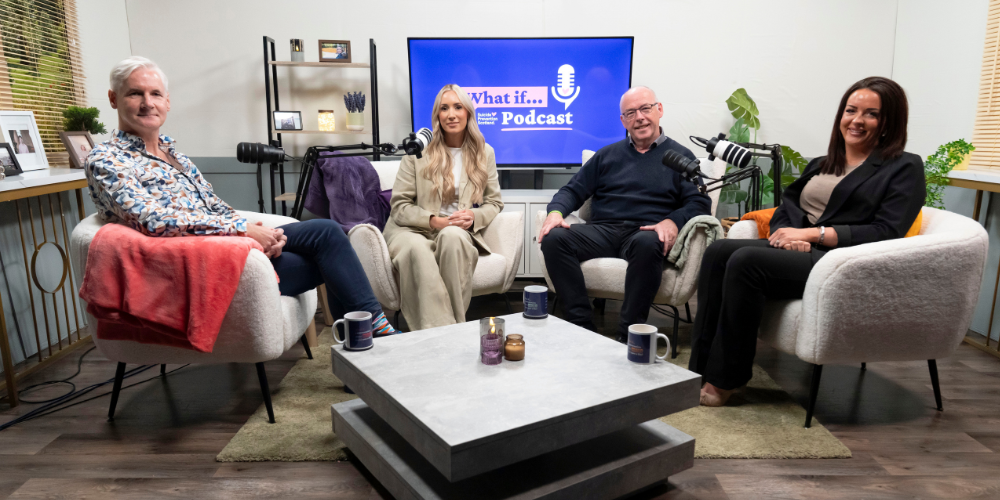
As part of our commitment to have Scotland’s ‘biggest ever conversation about suicide’ we’ve produced a brilliant, new limited edition video podcast series.
The concept reflects the campaign approach, and connected well to the IASP theme for 2024-26 about ‘Changing the Narrative’.
The What If Podcast will be broadcast on Suicide Prevention Scotland’s YouTube channel - or you can listen wherever you get podcasts (Apple, Spotify, Amazon Music etc).
Our concept leans into the hugely successful You Me and the Big C podcast which was presented by three women who lived with - and eventually died from - cancer.
It was an unbelievably candid podcast, which probably played a big part in bringing the idea of podcasts to mainstream as well as normalising conversation about health and its impact on daily life.
The podcast is presented by the brilliant Amy Irons, a broadcaster with BBC Scotland.
Importantly, Amy has her own lived and living experience. Her partner Wayne died by suicide in 2018.
Amy has spoken at length about Wayne’s death across a series of different media interviews, but in our conversations with her it’s clear that she wants to be able to meaningfully contribute to Scotland’s mission to prevent suicide. She has a really good understanding of the issues, and is keen that we get beyond “talk” and move into “ask”.
When you watch the episodes you will see just how much Amy gave of herself with each of our guests.
Each episode is filmed with four cameras, in a beautifully lit studio.
We sprinkled colour from the Suicide Prevention Scotland brand through the set. Framed photos of our phase 01 ambassadors appear on the shelves, a subtle nod to the amazing people who started this journey.
Episodes will be released once per week starting on WSPD 2025 - 10 September, with subsequent episodes every seven days.
You'll be able to watch on YouTube, or listen on Spotify, Apple Podcasts, Amazon Music and most other platforms.
Your episode by episode guide
Four episodes, with big, bold conversations about suicide. Here's a run down of each one and the guests appearing.
What if we need to talk about suicide?
This episode introduces suicide, what it is, why it happens and what we can do about it.
John Gibson
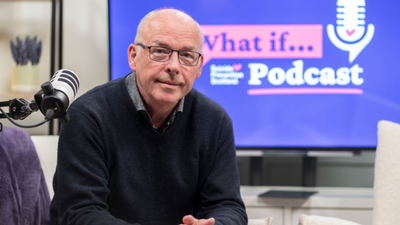
Along with wife Isobel, John set up the Canmore Trust following the death by suicide of their beloved son Cammy. John would go on to have suicidal thoughts.
Rory O'Connor
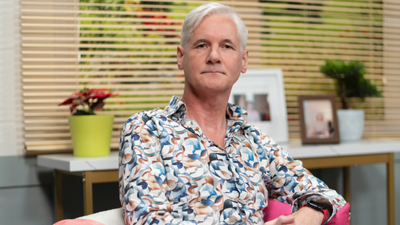
Rory is Professor of Health Psychology at the University of Glasgow and author of the book, Why People Die by Suicide and What We Can Do to Prevent It.
Natalie Dakhill
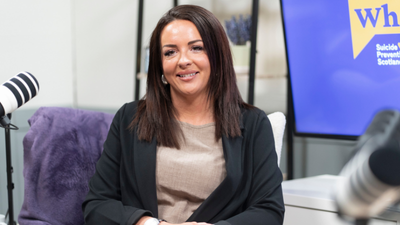
Natalie founded A Place Called Here, a support group for people bereaved by suicide. This followed the loss of her dad Michael to suicide in 2024.
What if a dog could save your life?
No, this isn't actually an episode about pets (we do love them though) but about how you find hope when it feels like all is lost.
Kris Boyd
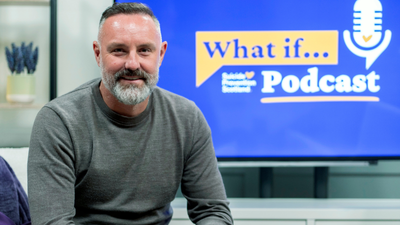
The former Scotland forward may have been known as a 300 goal striker, but in 2016 he lost brother Scott to suicide. Kris later set up the Kris Boyd Charity.
Lisa Marshall
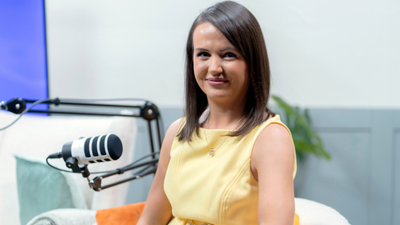
A TikToker, Lisa posts about life as a mum of three children following the loss of her husband Alan by suicide in 2023. Alan’s favourite player was...Kris Boyd.
Brendan Rooney
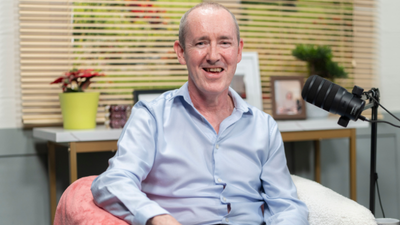
A former mental health nurse, Brendan is the Executive Director of Healthy ‘N’ Happy, a South Lanarkshire charity using placed-based action to prevent suicide.
What if society actually worked for people?
In this episode, we're exploring systems and society, with an aim of thinking about what we can do to make people's lives better.
Lorraine McGrath
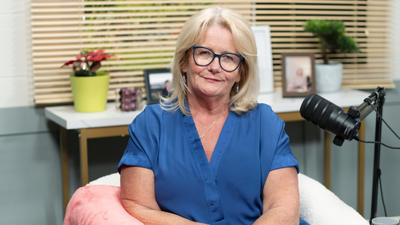
The CEO of Scotland’s largest homeless services charity, Simon Community Scotland, Lorraine brought a unique insight into social determinants.
Paul Stevenson
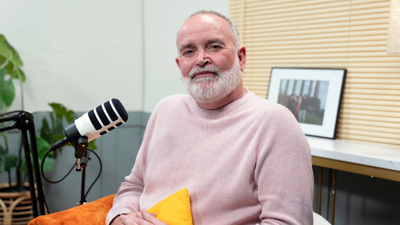
Paul is a mental health advocate. He received a late stage diagnosis of Tourette Syndrome, OCD, ADHD and Sensory Processing Disorder.
Martin Melly
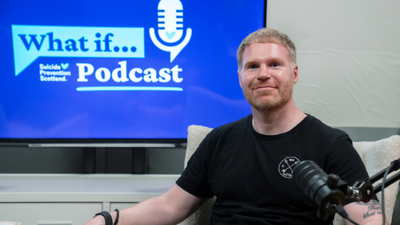
Martin is Operations Manager at Men Matter Scotland, a Glasgow charity that supports over 500 men each week with their mental - and physical - health.
What if I feel I don't fit in?
Our final episode focuses on the impact of suicide for people in marginalised communities.
Mo Mansaray
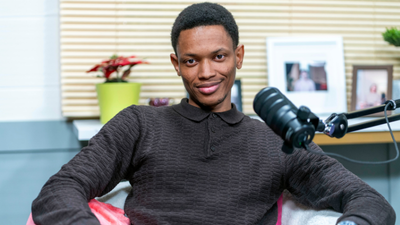
Mo was a victim in the 2020 attack on people living in a hotel used by asylum seekers in Glasgow. He went on to join the Men Minds project.
Rebecca Don Kennedy
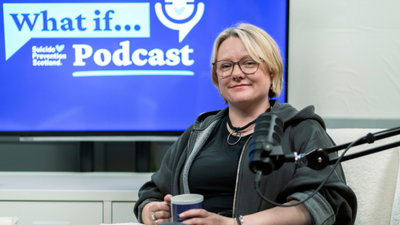
Rebecca is the CEO of the charity Equality Network, and Scottish Trans, sharing her deep understanding of marginalised communities.
Jamie MacLean
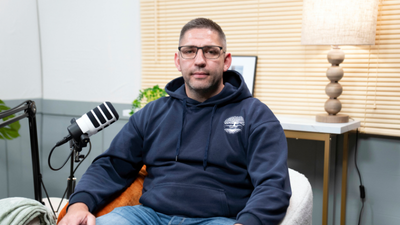
Mentor Scotland founder, Jamie used recreational drugs to cope as he struggled with the effects of trauma. As an adult he finally received an ADHD diagnosis.
Order free digital resources
If you work for an organisation that is involved in suicide prevention, then you can use this form to order free resources for World Suicide Prevention Day 2025.
